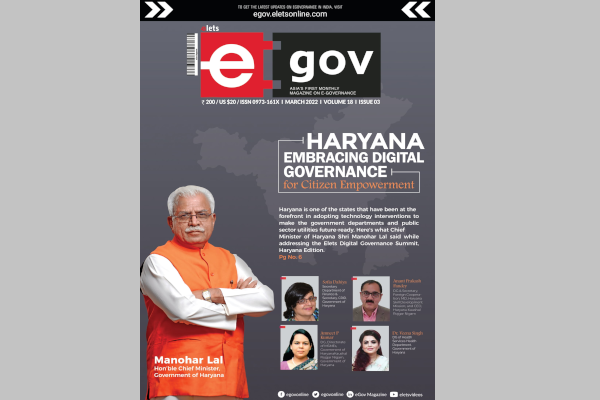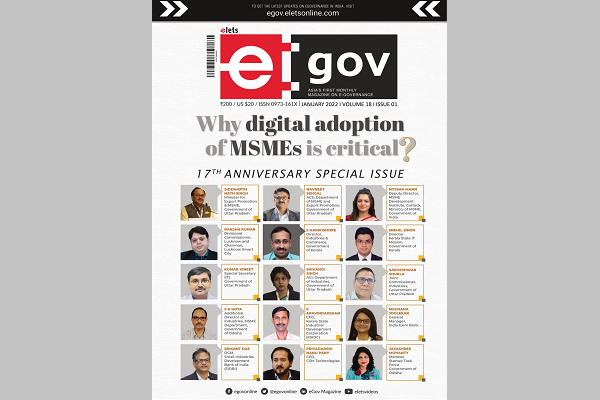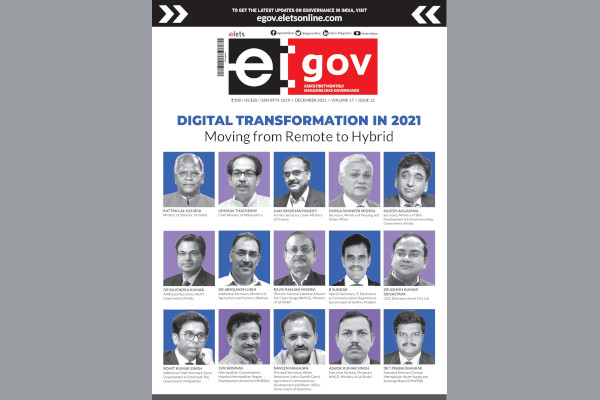
 It is said that 21st century is the century of cities. Governments across the globe have realized that for the nations and states to grow economically, cities need to grow economically. This paradigm shift views Cities as the ‘engines of economic growth’. However, to achieve the economic growth, city administrators need to overcome many challenges while managing cities. Rapid urbanisation is increasing population of cities, which in turn is creating enormous amount of stress on existing city infrastructure and operations. On the other hand, globalization is increasing citizen expectations.
It is said that 21st century is the century of cities. Governments across the globe have realized that for the nations and states to grow economically, cities need to grow economically. This paradigm shift views Cities as the ‘engines of economic growth’. However, to achieve the economic growth, city administrators need to overcome many challenges while managing cities. Rapid urbanisation is increasing population of cities, which in turn is creating enormous amount of stress on existing city infrastructure and operations. On the other hand, globalization is increasing citizen expectations.
A citizen’s expectation from government has drastically increased due to this phenomenon. They are looking for better living conditions and citizen services. Hence on one hand, governments are keen to enhance and expand cities economies, while on the other hand they are trying to tackle huge challenges faced by cities. Global urban expert community, have been studying these dynamics and also trying to create a framework to lay the road map to resolve these challenges. The outcome of these studies resides on three basic pillars, first enhancing and upgrading city infrastructure, second digital transformation of the city infrastructure and operations, and third is defining liveability index of the city.
The traditional approach of investing in new city infrastructure and improving existing city infrastructure has been a focus over a decade, however city leaders have realized that although infrastructure investments are essential they are not sustainable and very capital intensive. Therefore, city leaders are embarking on digital transformation approach, which is proven to be more sustainable and effective to tackle short term challenges like traffic congestion and enforcement management, crime management, law and order management, water quality and adequacy management, electricity management, transit management, city incidence management etc.

It is a known fact that the digital transformation not only improvers the operational efficiency of the city but also determines insight on behaviour and needs of the citizens and city infrastructure, which in turn can be used to make better decision on infrastructure investment and operation improvements. Similarly, Liveability Index of the city is a new measure to rate cities and their performance. Higher the liveability indicators better are economic prospects. Therefore, improvement in liveability index of the city attracts global business companies, investors and talent pool which is the prime focus of many city leaders today. Digitally transformed efficient city operations contribute tremendously in improving liveability index of the city. Research has shown that since city is a “system of systems”, achieving improvement through digital transformation in few areas of operations by deploying silo solutions (like solid waste collection, adaptive traffic, transit management etc) not necessarily makes the city smart.
And the reasons are interdependencies between city operations, which are not visible unless and until critical situations or incidences surfaces. Similarly, inefficient operations of one department impacts the efficiency of other departments due to interdependencies between operations. Therefore, handling interdependencies between operations with different efficiency levels needs a special focus to improve the overall efficiency of the city operations. To resolve these issues the concept of city command and control centre (CCC) was developed. Over the decade the CCCs have transited through difference maturity levels. However, many cities are still struggling with making right choice of the technology and developing measurable process seamlessly.

The core system is a platform which is capable of:
Unified Central platform: Platform, which allows seamless two-way integration with various subsystems dedicated for different city operations, driving unified user interface, providing ease of operations and central control across multiple operations.
Unified Control Platform: Automated responsive system, which unifies the control of various subsystem through single user interface empowering CCC users to manage interdependent incidences and events, situational awareness and common operational picture.
Unified Command Platform: Initiate chain of command to deliver instructions and information plus seek acknowledgement of fulfilling tasks from field resources by means of video, audio and mobile applications to achieve real time interaction with operational resources.
Unified Operation Platform: Platform allows users to enhance and extend the operational capabilities of subsystems through platform resources like workflow, GIS, Dashboards, KPI etc and also empowers CCC users to carry on cross functional operations through the platform’s unified user interface.
Unified Decision Support Platform: Ability to provide support to various operations during event and incidences based on patter analysis and data modelling, artificial intelligence, machine learning, what if analysis and simulation. This digital transformation can be achieved in totality only if the city establishes the road map for the stepwise digital transformation and CCC platform becomes the heart of this transformational journey.
Selection of a CCC Platform becomes critical since the platform must have the capability of sustaining for long period of time and equipped with accommodating present and future technologies. AVEVA Group’s City command and Control solution with above capabilities is well proven as the platform for the future.
Be a part of Elets Collaborative Initiatives. Join Us for Upcoming Events and explore business opportunities. Like us on Facebook , connect with us on LinkedIn and follow us on Twitter, Instagram.











